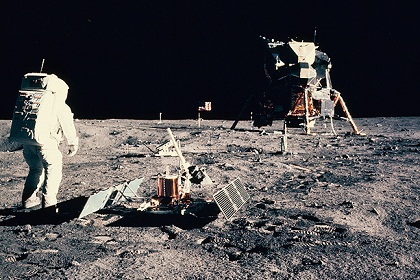 Courtesy: ngm.nationalgeographic
Courtesy: ngm.nationalgeographic
New Delhi’s space policy makers have been promoting the possibility of deriving Helium-3 from the Moon for Earth-based applications for over a decade—but it is not a viable proposition and it’s time they stopped placing the cart before the horse
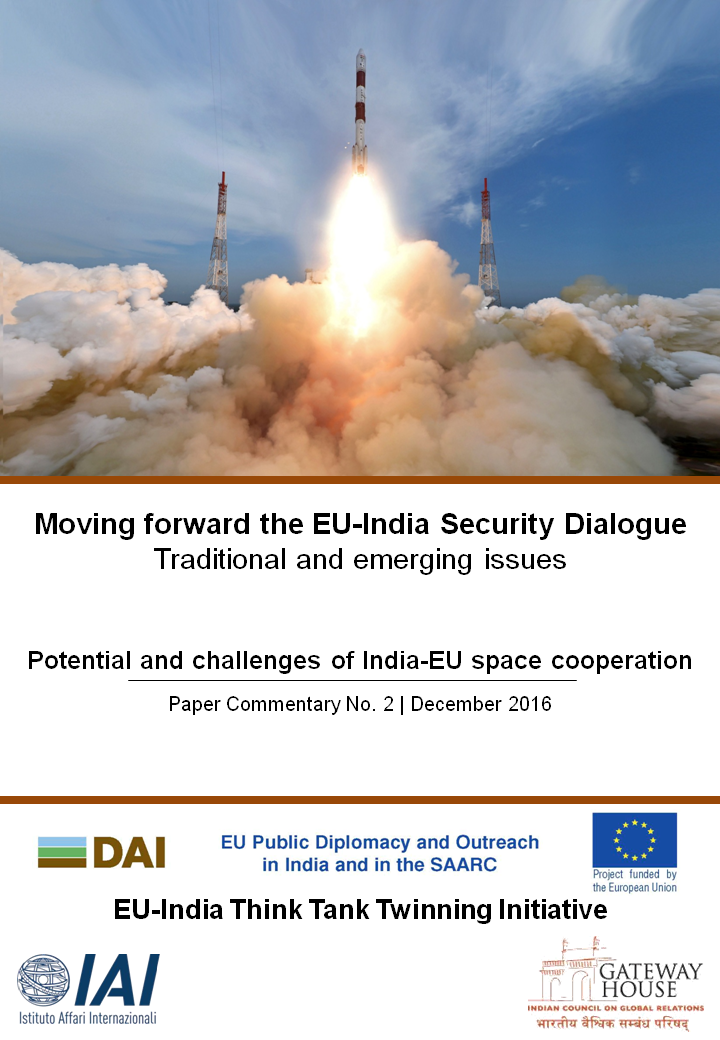 Courtesy: Wikipedia
Courtesy: Wikipedia
India-EU space collaboration is still nascent largely due to the EU’s limited autonomy over its space programme. Astro-geopolitics, an inevitable successor to geopolitics, requires confidence-building and furthering strengthening of bilateral linkages
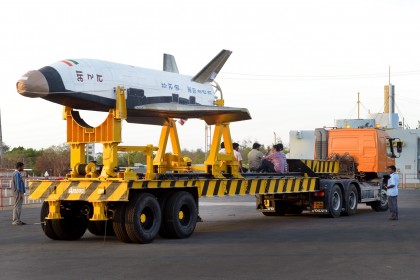 Courtesy: ISRO
Courtesy: ISRO
The Indian Space Programme has a mandate to focus on its launch- and earth-oriented capabilities. In the past decade, it has attempted some non-conventional experimental projects under the labels “‘low-cost” and “technology demonstrator”. However the effect of these experimental space projects on India’s techno-economic growth will be realised only if the central government gives the project greater status and funding.
 Courtesy: Navaneeth Unnikrishnan / Wikipedia
Courtesy: Navaneeth Unnikrishnan / Wikipedia
A tectonic shift is occurring in the science landscape, wherein newly-developed nations are audaciously investing in frontier scientific research at par with developed nations. India is game to join this new wave of advancement, but its research-funding mechanisms are deficient. Can Indian philanthropy endow indigenous R&D?
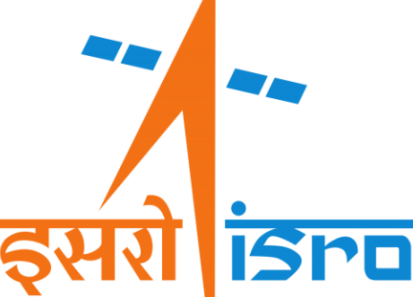 Courtesy: Wikipedia
Courtesy: Wikipedia
Instead of inviting foreign corporations to India to create a manufacturing base, Modi can use his Silicon Valley experience to build a similar research and development foundation in India for indigenous high-tech companies. A strategic space megaproject could be the start of this much-needed push.
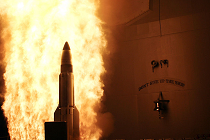 Courtesy: US-Navy/Wikimedia Commons
Courtesy: US-Navy/Wikimedia Commons
The UN’s Transparency and Confidence Building Measures for Outer Space Activities to address terrestrial anti-satellite weapons have spawned schismatic instruments such as the EU’s International Code of Conduct and a Sino-Russian treaty. India must weigh its national interests before agreeing to these drafts
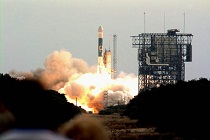 Courtesy: NASA/Wikimedia Commons
Courtesy: NASA/Wikimedia Commons
At a time when China has invested substantially in its space projects and Russia is invigorating its space exploration, India too must develop a strategically-designed programme. The successful launch of the Mars Orbiter Mission should give New Delhi enough reason to increase India’s space footprint
 Courtesy: NASA's Marshall Space Flight Center/Flickr
Courtesy: NASA's Marshall Space Flight Center/Flickr
An increase in the global demand for rare earth elements, used in high-technology industries, coupled with limited supplies on Earth, has accelerated extra-terrestrial exploration. International cooperation and competition for these space-based resources will determine the next human footprint and race in space.
Courtesy: Tas50/WikimediaCommons
In the past few years, the political map of Antarctica, a region rich in mineral-fuel resources, has changed immensely. How can the ongoing geopolitical polarization in this region have unfavourable global effects in the long run?
 Courtesy: ridingwithrobots/Flickr
Courtesy: ridingwithrobots/Flickr
Though India’s approach to space has been pragmatic, it is hindered by a lackadaisical approach by policymakers. India must recognize the stagnancy and myopia of its space program and come up with a long-term vision.











